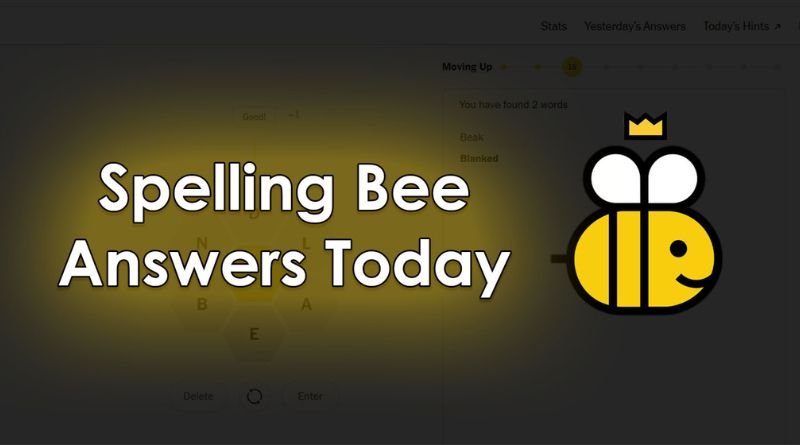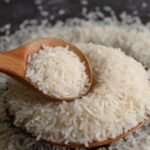Spelling bees are fun, challenging competitions that test vocabulary, memory, and spelling skills. Participants, especially students, often spend weeks preparing for spelling bees by studying word lists, practicing with friends, and testing their skills with past competition words. Whether you’re a student preparing for an upcoming competition or simply interested in expanding your vocabulary, understanding where to find helpful resources and tips is essential.
In this article, we’ll cover the different types of spelling bee answers, resources to help you practice, and some effective strategies to improve your spelling skills.
Table of Contents
Why Spelling Bees Are Beneficial
Spelling bees encourage language development and help build a strong vocabulary. Here are some ways participating in a spelling bee can benefit you:
- Enhanced Vocabulary: By learning new words, you not only improve your spelling but also broaden your knowledge and understanding of language.
- Improved Memory: Memorizing word lists and definitions helps enhance cognitive skills and recall abilities.
- Increased Confidence: Successfully learning and spelling challenging words builds self-confidence and public-speaking skills.
- Better Pronunciation and Phonics Skills: Spelling bees emphasize pronunciation, helping participants improve phonetic skills and learn the correct way to articulate words.
Resources for Finding Spelling Bee Answers
If you’re preparing for a spelling bee, it’s important to have access to reliable resources. Here are a few to get you started:
- Official Spelling Bee Word Lists
Many spelling bees provide official lists of words to help participants study. These lists can be found on websites of organizations like Scripps National Spelling Bee or regional spelling bee events. Word lists are often divided by difficulty level, helping participants progress as they improve. - Spelling Bee Apps and Websites
Online resources such as SpellPundit and Word Club (the official Scripps Spelling Bee app) offer interactive word lists, quizzes, and spelling challenges. These tools can be particularly useful because they offer immediate feedback on spelling and pronunciation. - Dictionary Resources
A high-quality dictionary, whether online or in print, is one of the best tools for spelling bee preparation. The Merriam-Webster dictionary, for example, is widely used in spelling bees and is an excellent resource for definitions, pronunciations, and usage examples. - Educational Websites
Websites like Vocabulary.com and Quizlet provide vocabulary-building games and flashcards that are useful for studying spelling bee words. They can help you get accustomed to the spellings and meanings of challenging words. - Past Spelling Bee Archives
Looking at past competitions and their winning words can give you a sense of what types of words to expect. Many regional and national spelling bees post archives of past words, which can be valuable for practice.
Tips for Studying and Improving Spelling Skills
Learning how to spell new words correctly requires time and strategy. Here are some effective study tips:
- Break Down Words by Syllable
Breaking a word into syllables can make it easier to remember. For instance, “philanthropy” can be divided as “phi-lan-thro-py.” This technique also helps with pronunciation. - Use Mnemonics
Mnemonics, or memory aids, can help with particularly tricky words. For example, “necessary” has one “c” and two “s’s,” and you can remember it by thinking, “It’s necessary to have one cup of sugar.” - Practice with Phonetic Patterns
Many words follow phonetic patterns based on their language of origin. For example, words of Greek origin often contain “ph” instead of “f” (like “philosophy”). Recognizing these patterns can help you make educated guesses in competition. - Make Flashcards
Flashcards are a tried-and-true method for learning and memorizing new words. You can create your own or use digital flashcards on platforms like Quizlet to test your knowledge. - Consistent Practice
Regular practice is essential for building confidence and reinforcing spelling skills. Set aside a specific time each day to go through word lists, quiz yourself, and learn new words.
FAQs about Spelling Bee Answers
1. Where can I find official word lists for spelling bees?
Official word lists are typically provided by the organization hosting the spelling bee. For instance, the Scripps National Spelling Bee provides resources through their Word Club app and website. Local competitions may also provide word lists to registered participants.
2. Are spelling bee words the same every year?
No, each spelling bee features a unique set of words. However, studying past words can still be beneficial, as they help you understand the types of words and difficulty level expected in the competition.
3. How do I improve my spelling quickly?
Start by practicing with high-frequency spelling bee words, focusing on phonetic patterns, and using mnemonic devices. Consistency in practicing every day, even if only for a short period, will make a significant difference over time.
4. Are there any apps that can help me with spelling bee preparation?
Yes, apps like SpellPundit, Word Club (by Scripps), and Vocabulary.com are all excellent resources for spelling bee preparation. They offer interactive features to enhance learning and test your skills.
5. Can spelling bee preparation improve my vocabulary?
Absolutely. Preparing for a spelling bee involves learning new words, their meanings, and correct pronunciations, which enhances your vocabulary and overall language skills.
6. Do spelling bees only use English words?
While English is the primary language, many spelling bee words are borrowed from other languages, such as Greek, Latin, French, and German. Knowing the origins of words can help you recognize patterns and improve your spelling.
Conclusion
Spelling bees provide an excellent opportunity to strengthen language skills, expand vocabulary, and gain confidence in public speaking. With the right resources, strategies, and consistent practice, participants can prepare effectively for their competitions. The journey to mastering spelling bee words may be challenging, but it’s also highly rewarding, offering lifelong benefits in both communication and comprehension skills. Whether you’re aiming for the top prize or simply looking to improve, each step brings you closer to spelling success.






